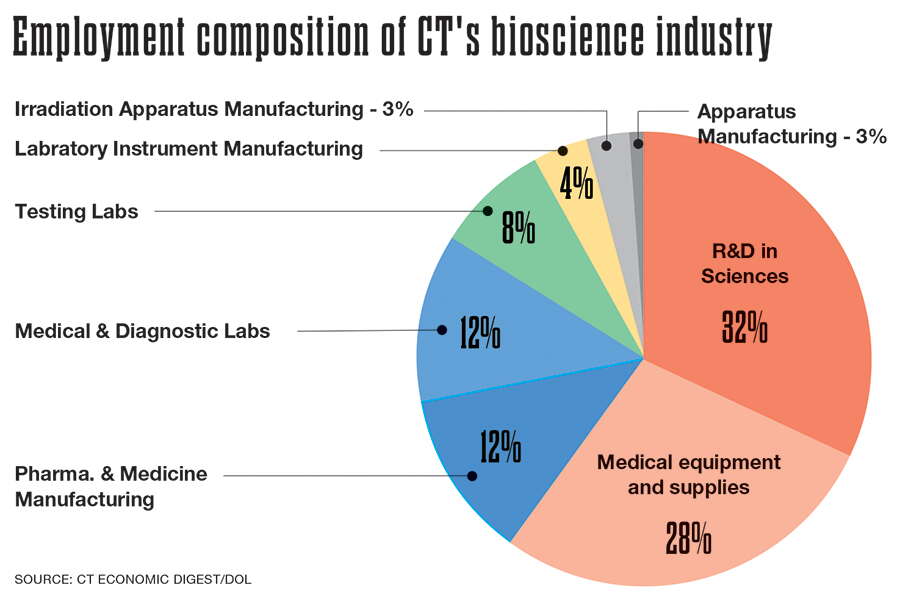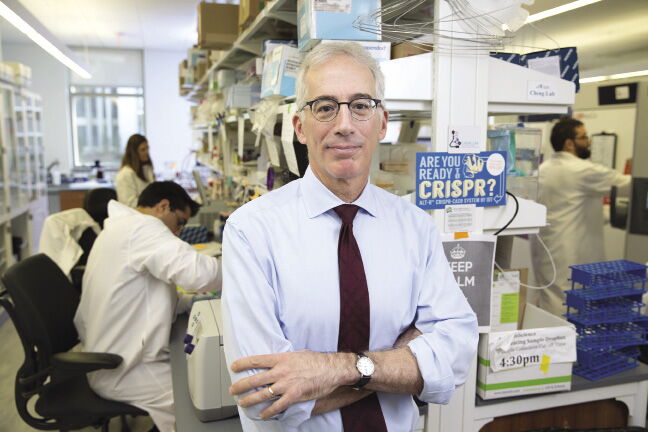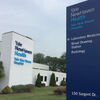
Processing Your Payment
Please do not leave this page until complete. This can take a few moments.
-
News
-
Editions
-
- Lists
-
Viewpoints
-
HBJ Events
-
Event Info
- 2024 Economic Outlook Webinar Presented by: NBT Bank
- Best Places to Work in Connecticut 2024
- Top 25 Women In Business Awards 2024
- Connecticut's Family Business Awards 2024
- What's Your Story? A Small Business Giveaway 2024 Presented By: Torrington Savings Bank
- 40 Under Forty Awards 2024
- C-Suite and Lifetime Achievement Awards 2024
- Connecticut's Health Care Heroes Awards 2024
-
-
Business Calendar
-
Custom Content
- News
-
Editions
View Digital Editions
Biweekly Issues
- April 29, 2024
- April 15, 2024
- April 1, 2024
- March 18, 2024
- March 4, 2024
- February 19, 2024
- February 5, 2024
- January 22, 2024
- January 8, 2024
- + More
Special Editions
- Lists
- Viewpoints
-
HBJ Events
Event Info
- View all Events
- 2024 Economic Outlook Webinar Presented by: NBT Bank
- Best Places to Work in Connecticut 2024
- Top 25 Women In Business Awards 2024
- Connecticut's Family Business Awards 2024
- What's Your Story? A Small Business Giveaway 2024 Presented By: Torrington Savings Bank
- 40 Under Forty Awards 2024
- C-Suite and Lifetime Achievement Awards 2024
- Connecticut's Health Care Heroes Awards 2024
Award Honorees
- Business Calendar
- Custom Content
Demand for biotech lab space, VC funding prompts call for state incentives
 HARTFORD BUSINESS JOURNAL FILE PHOTO
Paul Pescatello, executive director of the Connecticut Bioscience Growth Council, sees new laboratory space as a linchpin for the growth of New Haven's bioscience industry.
HARTFORD BUSINESS JOURNAL FILE PHOTO
Paul Pescatello, executive director of the Connecticut Bioscience Growth Council, sees new laboratory space as a linchpin for the growth of New Haven's bioscience industry.
When he looked at the trends in New Haven’s commercial real estate market, David Goldblum, president of development firm The Hurley Group, saw an opportunity.
Instead of continuing to lease office space at the 8-story, 105,500-square-foot Class B building his company owns at 55 Church St., Hurley would start converting the structure into laboratory space for the city’s growing biotech industry.
The Elm City Bioscience Center was born.
“We were looking for something that would work better financially,” Goldblum said of building for bioscience when compared to New Haven’s weak office market. “The numbers seemed to make sense, seemed to fit with our model.”
Renovations began in August 2021 to install HVAC, electrical and plumbing upgrades to make the entire building suitable for labs. By February, Hurley had signed two tenants totaling about 19,000 square feet: Aztek Bio and Siduma Therapeutics, a midstage company founded by a local biotech star, Arvinas founder Craig Crews.
More contracts are in the pipeline for the Elm City Bioscience Center, Goldblum said, and he expects it to be fully leased by early 2023 or 2024. All space is customized for tenants by Svigals + Partners, a local architectural firm that specializes in labs.
“We have a steady flow of interested parties,” Goldblum said. “And we’re very encouraged by the success of other people who are doing the same thing in town. It’s great to be part of the development of what we think will be a really strong ecosystem.”
Call for state incentives
High demand for biotech lab space in New Haven and across the state has prompted the Connecticut Business & Industry Association (CBIA) to launch an initiative to take the industry to the next level.
“We’ve really reached a critical mass of new companies,” said Paul Pescatello, senior counsel at CBIA and executive director of the Connecticut Bioscience Growth Council. “There’s a pipeline of companies coming out of the labs of the research universities. The next stage of economic development is really to keep those companies here as they mature to the midstage.”
More lab space is one of the keys to the continued growth of bioscience in the state, and CBIA plans to ask state lawmakers to set aside funding to subsidize new buildings and office-to-lab conversions, Pescatello said.
“There are a bunch of proposals that are percolating out there,” Pescatello said. “Probably the best thing we could do at this point would be to put together a pool of state funds to make available to developers at low interest rates to build lab space.”
An estimate for the amount of additional lab space needed in New Haven is 50,000 to 100,000 square feet, Pescatello said, “creating enough slack in the system so that some lab space is routinely available for biotechs as they expand or start up.”
New Haven developers are meeting current needs on a longer time scale but some vacant lab space is required to bump up biotech activity, he added.
Another crucial attraction to bioscience entrepreneurs is locally-based venture firms, Pescatello said. A CBIA plan now in development proposes a $100 million bond authorization to invest in four or five VC firms of $20 million to $25 million each. The firms would be required to set up a fully-staffed office in Connecticut and provide the state a preferred return in the 7% range.
“Bringing in more VC firms to Connecticut is the most effective/consequential economic development measure to further grow the biotech sector,” Pescatello said.
Dawn Hocevar, CEO of BioCT, Connecticut’s bioscience industry group, said the state can also help by raising the industry’s national profile, in addition to incentivizing infrastructure like lab space.
“We need to be able to recruit, not only to keep companies here, but recruit companies to Connecticut,” Hocevar said. “Many companies that are inquiring in Connecticut are looking for already available lab space. They would love to see available lab space now.”
A lease discount
Demand continues to grow in New Haven despite the hundreds of thousands of feet of lab space due to come online in the next few years. The city is still a bargain with lab space leasing for between $30 and $50 per square foot, compared to more than $90 per square foot in Boston and $100 in New York City, according to a local real estate developer.
Office space in New Haven, by contrast, leases in many areas of the city for less than $20 per square foot in a soft market, barely above break-even for owners. Rates are flat or going down, according to industry sources, with major office towers like 900 Chapel turning to residential conversions.
Swapping traditional office tenants for biotech is a national trend, with 20% of new lab space being converted from offices in the six largest life science markets, the New York Times reported last year. In Boston, New Haven’s principal rival, 30% of new and planned lab space is former offices.
Although developing lab space is more expensive and time consuming, prospective tenants have bigger budgets thanks to the record $70 billion of private and public capital investment in the bioscience industry in 2020, according to the Times.
Project pipeline
New biotech lab projects that have opened or are in the works in New Haven include:
• Developer Carter Winstanley’s $100 million, 500,000-square-foot bioscience tower at 101 College St., which will likely be fully leased when it opens for business this year, dominated by large-scale tenants like Yale University and Arvinas. A section of the tower will also be set aside for a biotech incubator funded by Yale and run by BioLabs of Cambridge.
• Yale is also backing a 7,600-square-foot biotech incubator inside the John B. Pierce Laboratory at 290 Congress Ave., near the university’s medical campus. Called New Haven Innovation Labs, the incubator houses lab and office space for up to 19 startups.
• Winchester Works, an in-development biotech center in a 145,000-square-foot Class A former office building at 115 Munson St., was half leased as of April 2021. Developer Alex Twining has said he expects it to be fully leased by later this year and has already signed tenants Halda Therapeutics and Quantum-Si, a buzzy biotech that plans to move its headquarters from Guilford to New Haven.
But what is most urgently needed in New Haven now is new biotech “graduation space” – combination lab and office spaces in the 2,000- to 10,000-square-foot range for companies graduating from the startup stage, Hocevar said.
“We need a continuation of lab space being built,” Hocevar said. “It would be great to see more developers come in to want to make that investment.”
For Goldblum, of Hurley Group, midsize biotechs are the sweet spot for his Elm City Bioscience Center. The building’s downtown location, covered parking and proximity to Yale’s medical campus are major selling points, he said. He’s also counting on the continued growth of bioscience in Connecticut with help from industry groups and the state.
“What’s going on now is that we're building to satisfy the demand of people who already want to be in Connecticut,” Goldblum said. “What we want to do next is get to the point where people from outside Connecticut want to be here.”


2022 Giving Guide
This special edition informs and connects businesses with nonprofit organizations that are aligned with what they care about. Each nonprofit profile provides a crisp snapshot of the organization’s mission, goals, area of service, giving and volunteer opportunities and board leadership.
Learn more
Subscribe
Hartford Business Journal provides the top coverage of news, trends, data, politics and personalities of the area’s business community. Get the news and information you need from the award-winning writers at HBJ. Don’t miss out - subscribe today.
Subscribe
2024 Book of Lists
Delivering Vital Marketplace Content and Context to Senior Decision Makers Throughout Greater Hartford and the State ... All Year Long!
Read Here-
2022 Giving Guide
This special edition informs and connects businesses with nonprofit organizations that are aligned with what they care about. Each nonprofit profile provides a crisp snapshot of the organization’s mission, goals, area of service, giving and volunteer opportunities and board leadership.
-
Subscribe
Hartford Business Journal provides the top coverage of news, trends, data, politics and personalities of the area’s business community. Get the news and information you need from the award-winning writers at HBJ. Don’t miss out - subscribe today.
-
2024 Book of Lists
Delivering Vital Marketplace Content and Context to Senior Decision Makers Throughout Greater Hartford and the State ... All Year Long!
ABOUT
ADVERTISE
NEW ENGLAND BUSINESS MEDIA SITES
No articles left
Get access now
In order to use this feature, we need some information from you. You can also login or register for a free account.
By clicking submit you are agreeing to our cookie usage and Privacy Policy
Already have an account? Login
Already have an account? Login
Want to create an account? Register
Get access now
In order to use this feature, we need some information from you. You can also login or register for a free account.
By clicking submit you are agreeing to our cookie usage and Privacy Policy
Already have an account? Login
Already have an account? Login
Want to create an account? Register






0 Comments